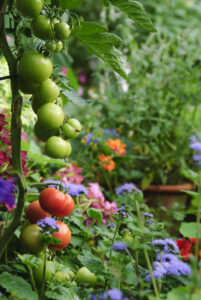Worm farming, also known as vermiculture, is an eco-friendly, sustainable, and highly rewarding way to manage organic waste while producing nutrient-rich compost. Whether you’re looking to reduce waste, create a source of income, or contribute to organic farming, starting a worm farm is an excellent option. In this blog post, we’ll guide you through the steps to set up your own worm farm and help you understand why it’s a growing trend in sustainable agriculture.
Why Worm Farming?
Worm farming offers several environmental and economic benefits, including:
-
- Organic Waste Management: Worms consume organic waste, turning it into high-quality fertilizer (worm castings) that helps plants thrive.
-
- Sustainability: It reduces landfill waste, lowers your carbon footprint, and supports eco-friendly gardening practices.
-
- Profit Potential: There’s a growing demand for organic fertilizers and live worms for composting and fishing.
How to Start Your Own Worm Farm
1. Choose the Right Worms
Not all worms are suitable for composting. The most popular species for worm farming is the Red Wiggler (Eisenia fetida). They are hardy, reproduce quickly, and are efficient at breaking down organic matter. You can also consider European Nightcrawlers, which are larger and commonly used for both composting and fishing bait.
2. Set Up Your Worm Farm
You don’t need a lot of space or expensive equipment to start a worm farm. Here’s how you can set up yours:
-
- Containers: Use plastic or wooden bins with ventilation holes. These can be purchased or homemade, but ensure they have good drainage to avoid waterlogging.
-
- Bedding: Worms need a moist environment to thrive. Use materials like shredded newspaper, cardboard, or coconut coir for bedding. Keep the bedding damp but not soaking wet.
-
- Food Source: Worms eat fruit and vegetable scraps, coffee grounds, eggshells, and leaves. Avoid feeding them meat, dairy, and oily foods as they can attract pests and cause unpleasant odors.
3. Caring for Your Worms
Once your farm is set up, regular maintenance will ensure your worms remain healthy and productive:
-
- Feeding: Feed your worms every few days. Start with small amounts and gradually increase as the worms multiply.
-
- Harvesting Castings: Worm castings are a valuable organic fertilizer. After a few months, the worms will convert the bedding and food scraps into compost. Harvest the castings by separating the worms from the compost, then replenish the bedding.

Benefits of Worm Castings for Your Garden
Worm castings, also known as “black gold,” are one of the most potent natural fertilizers. They are packed with beneficial nutrients, including nitrogen, phosphorus, and potassium. Here are some key benefits:
-
- Improves Soil Structure: Castings enhance soil aeration and water retention.
-
- Boosts Plant Growth: The nutrients in castings promote faster, healthier plant growth.
-
- Pest and Disease Resistance: Castings contain microorganisms that help plants resist diseases and pests naturally.

Marketing Your Worm Farm Products
Once your farm is thriving, you can start selling the by-products, such as:
-
- Worm Castings: Market these to gardeners, landscapers, and organic farmers as an eco-friendly fertilizer.
-
- Live Worms: Sell worms to fishermen, other composters, or pet owners who need them for reptile food.
-
- Compost Tea: Worm tea, a liquid fertilizer derived from castings, is another valuable product that you can offer.
Marketing Tips:
-
- Local Farmers Markets: Set up a stall to sell your products and educate your community on the benefits of vermiculture.
-
- Online Presence: Create a website and use social media to promote your products. Use SEO strategies to rank for terms like “buy worm castings,” “worm composting supplies,” and “organic fertilizers.”
-
- Partner with Gardening Stores: Approach local nurseries or gardening stores to stock your products.
SEO Best Practices for Worm Farming Blogs
If you’re promoting your worm farming business online, SEO is crucial to ensure people find your website. Here are some best practices:
-
- Use Keywords: Focus on keywords like “worm farming,” “vermicomposting,” “organic fertilizers,” and “how to start a worm farm.” Include these naturally in your blog post titles, meta descriptions, and throughout your content.
-
- Create Informative Content: Write detailed, informative posts that answer common questions, such as “What are the benefits of worm castings?” or “How to harvest worm compost.”
-
- Optimize for Search Engines: Use H1, H2, and H3 tags to structure your content for better readability. Ensure your images have alt text, and don’t forget to write clear meta descriptions for your posts.
-
- Link Building: Include internal links to other blog posts or pages on your website, such as your products page. Reach out to other eco-friendly websites for backlinks to increase your domain authority.
Common Challenges and How to Overcome Them
Worm farming is relatively easy, but you may encounter some challenges along the way. Here are common problems and solutions:
-
- Worms Dying: This is often due to poor conditions, like extreme temperatures, overly wet or dry bedding, or lack of food. Keep the environment consistent and monitor the moisture levels regularly.
-
- Odor Issues: If your worm bin starts to smell, it’s a sign of overfeeding or poor ventilation. Remove excess food and ensure there’s good airflow.
-
- Pests: Avoid overfeeding and keep the bin covered to prevent attracting fruit flies and other pests.
Conclusion
Worm farming is an eco-friendly, rewarding, and potentially profitable venture. By recycling organic waste into valuable products like worm castings, you’re contributing to a greener planet while growing your own sustainable business. Whether you’re looking to sell worm compost, castings, or worms themselves, there’s a growing market for these natural, organic products.
By following these steps and incorporating effective SEO strategies, you can build an online presence, attract customers, and ensure the long-term success of your worm farming business. Happy farming!
